Question And Answer
Publications
Articles, publications, books, tools and multimedia features from the U.S. Institute of Peace provide the latest news, analysis, research findings, practitioner guides and reports, all related to the conflict zones and issues that are at the center of the Institute’s work to prevent and reduce violent conflict.
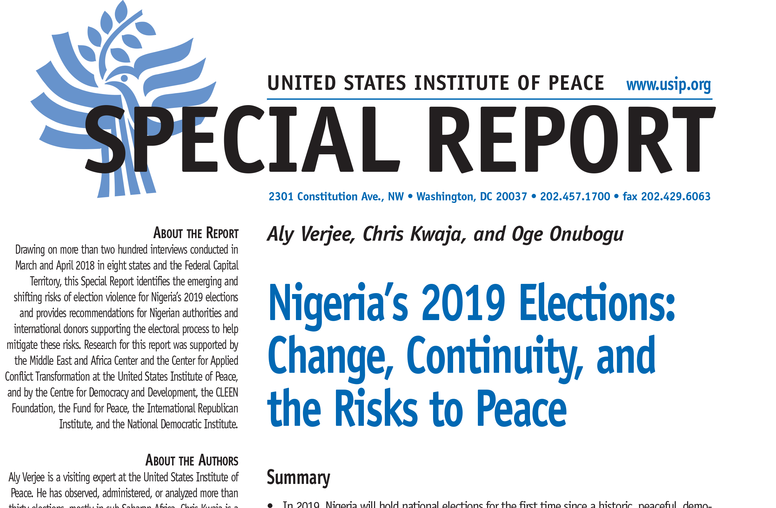
Nigeria’s 2019 Elections: Change, Continuity, and the Risks to Peace
Drawing on more than two hundred interviews conducted in March and April 2018 in eight states and the Federal Capital Territory, this Special Report identifies the emerging and shifting risks of election violence for Nigeria’s 2019 elections and provides recommendations for Nigerian authorities and international donors supporting the electoral process to help mitigate these risks.
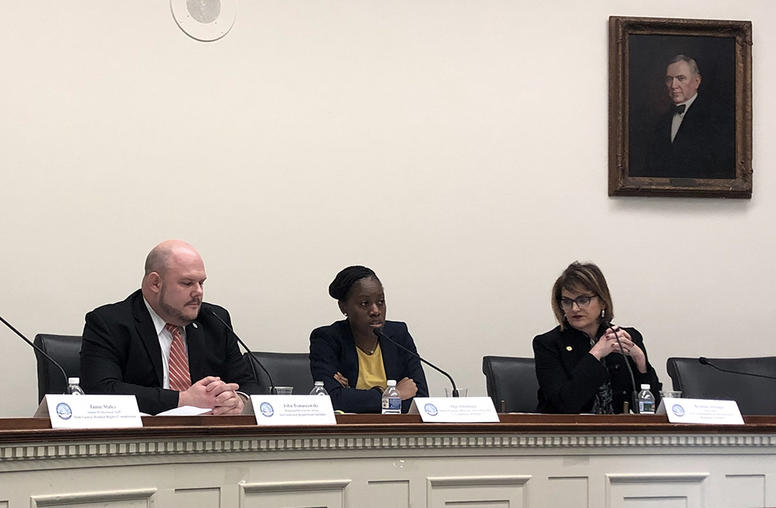
Nigeria: Elections and Human Rights
Nigeria’s keenly anticipated presidential and national assembly elections are scheduled for February 16, 2019, while the elections for state governors and state assemblies are scheduled for March 2, 2019. These elections come 20 years after the restoration of democratic, multiparty constitutional rule in Nigeria.
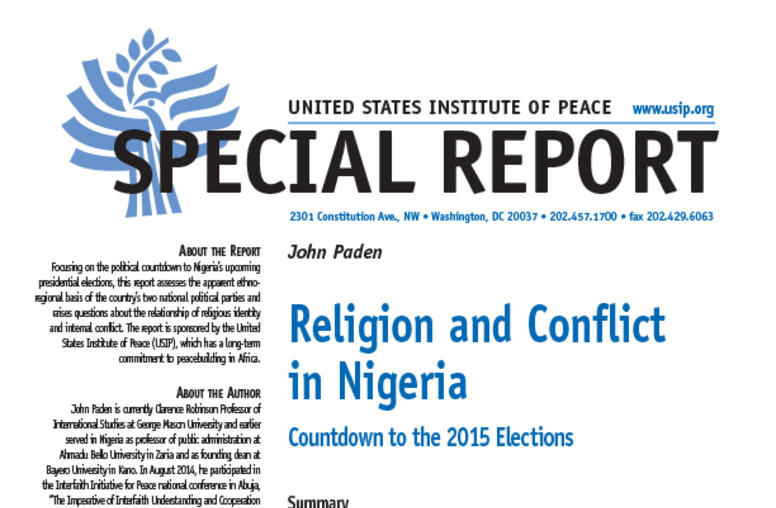
Religion and Conflict in Nigeria
Nigeria—its vast population evenly split between Muslim and Christian—is counting down to another presidential election, scheduled for February 2015. This report raises a number of questions about the relationship of religious identity and internal conflict and the consequences of a polarized election. Do religious symbols exacerbate or mitigate conflict, especially during an electoral season? What are the interfaith efforts to ameliorate or mitigate ethno-religious conflict? What are the con...
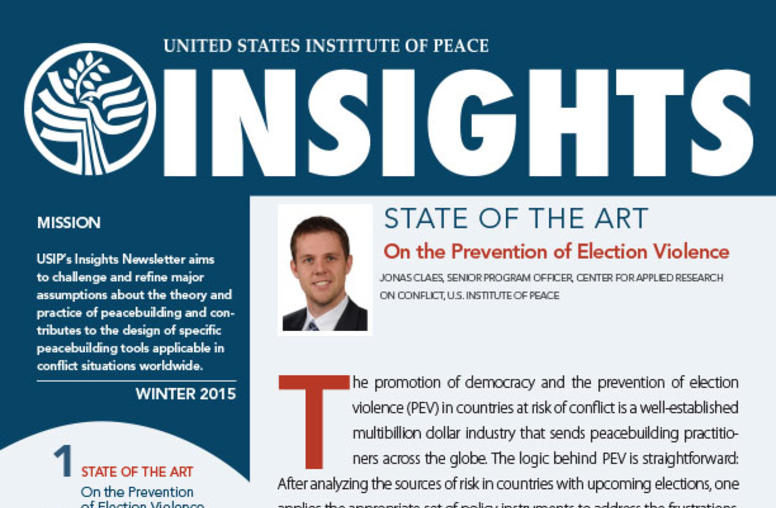
Winter 2015 Insights Newsletter – Preventing Election Violence
Insights highlights major questions on the research and practice of peace and conflict, to more than 10,000 subscribers from around the world.
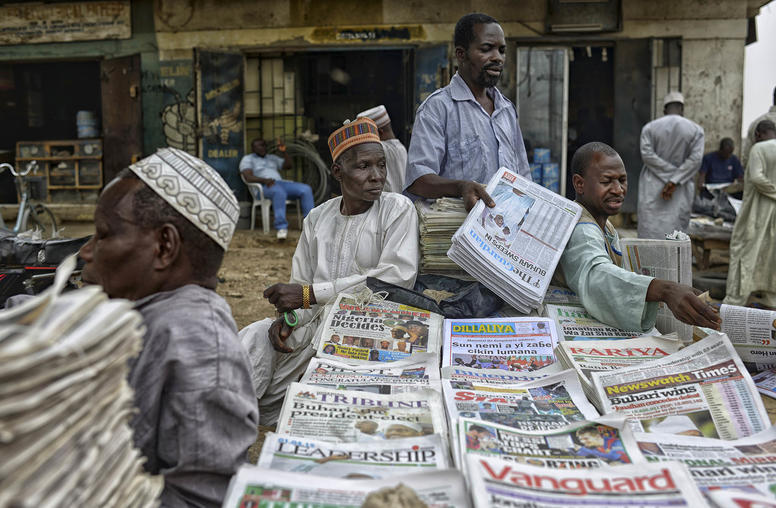
Amid Nigeria’s Turmoil, an Election Could Alter its Democracy
In mid-summer 2022, Nigeria is just seven months away from elections that could strengthen, or set back, its democracy. Good news includes a surge in voter registrations and a wave of civic engagement among young Nigerians who in recent years have often despaired of better governance through elections. Yet dangers loom: risks of electoral violence or disputed election results in a country where political and criminal violence has reached new levels. To help Africa’s most populous nation pivot toward stability — and to indirectly bolster democratization across the continent — the United States and other international partners should provide diplomatic, political and technical support for Nigeria’s electoral authority.
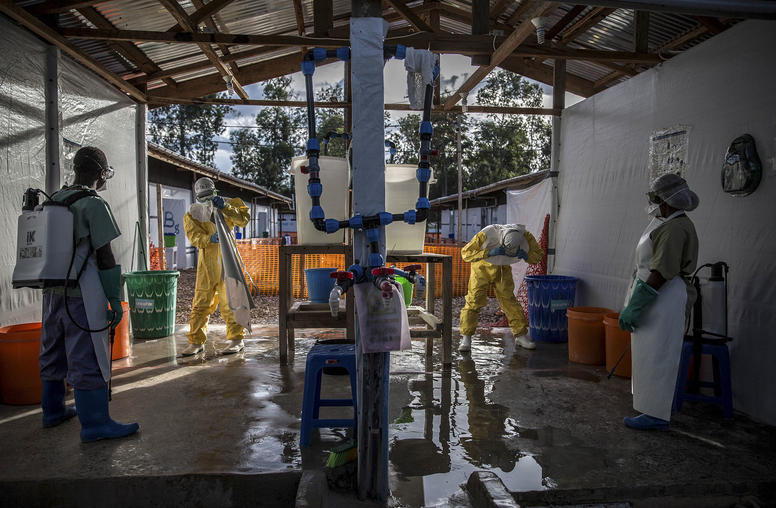
Four Lessons from Outbreaks in Africa for the Age of Coronavirus
As the coronavirus pandemic continues and new behavioral practices—from social distancing to avoiding handshakes and hugs—become expected norms overnight, there are crucial policy lessons to be learned from struggles against previous outbreaks of disease in Africa. Despite widespread poverty, weak infrastructure, and relatively few health professionals, there is an encouraging, long record of African countries—often with significant international assistance and cooperation—eventually managing to overcome dire health challenges. For non-African countries already facing large numbers of COVID-19 infections, as well as for African countries where the epidemic is now at an early stage, policymakers would do well to recall these four lessons of past epidemics—of both what to do and, perhaps almost as importantly, what not to do to confront this global threat.
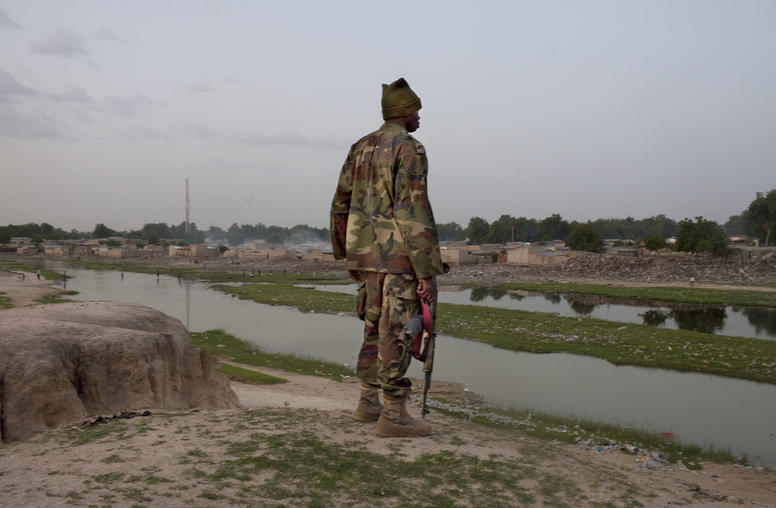
Nigeria Should Build Peace Like it Fights Coronavirus
Nigerian leaders struggling to reduce violence in the country’s myriad conflicts should take some lessons—from their own response to the coronavirus. While Nigeria’s COVID-19 ordeal is still unfolding, its eventual casualties unknown, the Nigeria Center for Disease Control (NCDC) and several governors have modeled the ways to reduce catastrophic outbreaks. The simple existence of a national prevention center with sustained resources has proven critical. Key officials have applied vital principles, acting at the first sign of danger and keeping the public widely informed. These are precisely the ways to confront Nigeria’s other national plague—of violence.
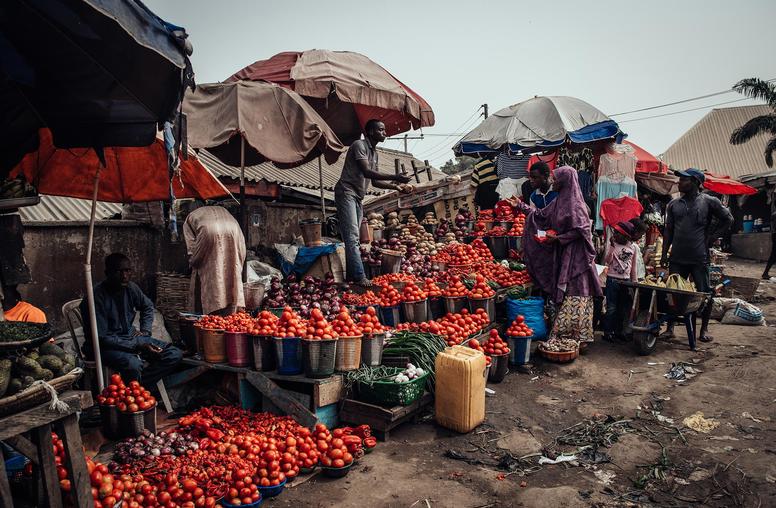
Nigeria: The Response to Coronavirus is an Opportunity for Reform
Well before the coronavirus emerged, a large majority of Nigerians felt their country was “going in the wrong direction.” Polling shows Nigerians feel the government has struggled to improve the living standards of the poor and is managing the economy badly. Today, while the public health response to head off the pandemic dominates attention, calls from prominent members of Nigerian civil society have renewed debates over wider questions of economic, social, and political reform. In this article, members of the Nigeria Working Group on Peacebuilding and Governance express both their hopes and concerns—in the context of the coronavirus—for Africa’s most populous country.
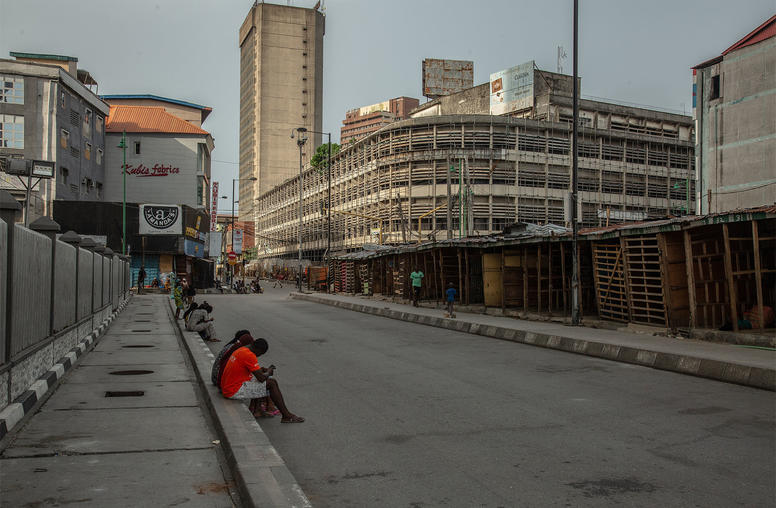
Is Insecurity Undermining the Coronavirus Response? Evidence from Nigeria
In the United States, there is no shortage of public opinion data on nearly every question imaginable. But in Nigeria, Africa’s most populous country, such data is more scarce and policymakers often lack detailed insights into citizen perceptions and concerns. Now, new evidence from USIP-commissioned surveys conducted in May and July 2020 of more than 10,000 Nigerians has found new relationships between violent conflict and the coronavirus response. The data shows that victims of violence are more likely to distrust the Nigerian government’s response to coronavirus.
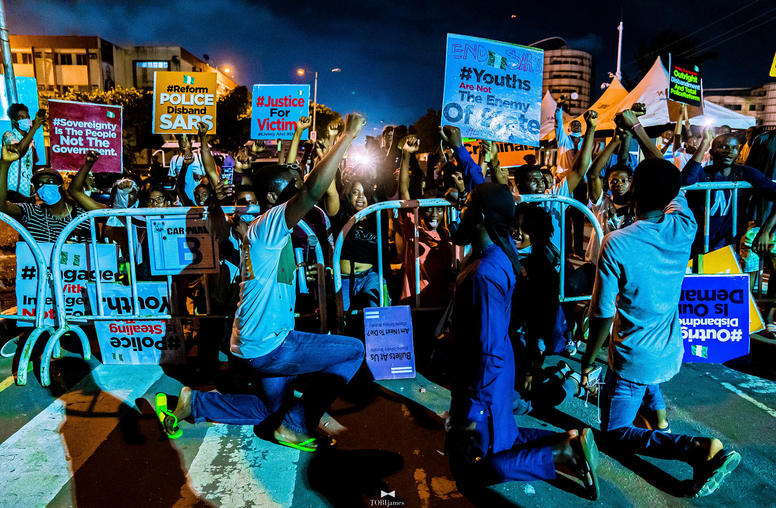
Protests Test Nigeria’s Democracy and its Leadership in Africa
Nigeria’s protests against police brutality already were the largest in the country’s history before security forces opened fire on a crowd in Lagos on October 20. The protest and bloodshed have only heightened the need for the government in Africa’s most populous country to end the pattern of violence by security forces against civilians. Leaders must finally acknowledge that this brutality has fueled violent extremism. How the Nigerian government will respond to citizens’ insistent demand for accountable governance will influence similar struggles—for democracy, accountability, nonviolence and stability—across much of Africa.